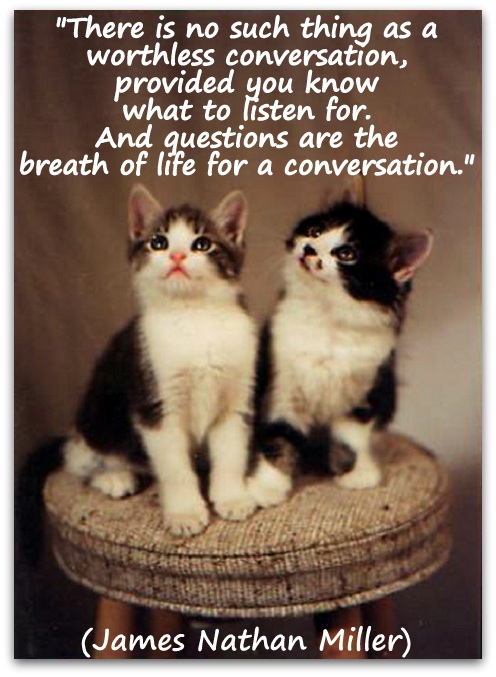In today’s guest post, Chris Morris explores the difference between coaching and friendship. Is a coach different to a friend?

Can you get free coaching from your friends?
by Chris Morris
Someone said to me earlier: “It must be great for your friends — all that free coaching on tap”.
I thought about it because I rarely coach my friends. I have lots of great conversations and we explore ideas together, but I rarely have coaching conversations with my friends. And that made me wonder about the difference I see between a social conversation and a coaching conversation.
They’re just labels of course, but for me they point in different directions.
I think of coaching as holding the space for someone to reveal themselves to themselves. It’s a process I find utterly absorbing, magical and transformative. In no time at all, someone can see themselves, their life and the world in a different way. Their attention melts through layers of thought to experience wisdom from deep inside of them.
When I work with someone, I know they can see further than me. I don’t want to sell them my limitations. So I don’t teach them what I think/know/believe/trust and instead support and love their own inquiry.
I find it remarkable how quickly people can see beyond what they saw before; experiencing what was always there but previously clouded by thought.
With social conversations, it’s different. I like having ‘meaningful’ conversations with my friends (I’m not going to chat about what happened on Eastenders last night!), but I’m not there to serve them in the same way I serve my clients.
When I’m coaching, my attention is absolutely and unconditionally with my client. If the door bell rings while I’m on the phone, I probably won’t hear it. The main reason I’m able to go so deep with my coaching is that I can slide out of being Chris, suspend my own perspective and hold the space I think is best described by the Sanskrit word Namaste. There are many translations of Namaste but my favourite is this: “I honour the place in you where the entire universe resides. I honour the place in you of love, of light, of truth, and of peace. When you are in that place in you and I am in that place in me, there is only one of us.”
Michael Neill talks about transformative coaching as “the space where miracles happen” and I love that too.
I like to think I approach all conversations in a loving and kind way, but the point is ‘I like to think’. With friends, I’m not necessarily holding the space for us to to see beyond our thinking. I want to explore their thinking for my own benefit and I want to share my thinking too. More than that, I want to drink beer, listen to music and joke around.
My friends experience my personality; a manifestation of a separate self. I’m very much Chris with my friends, and I defend my borders in all the usual ways.
I think that’s important because I think separation is an inherent part of evolution.
Can we be human beings having a spiritual experience and spiritual beings having a human experience? It seems to me that denying either aspect is a denial of our wholeness.
But one of the consequences of showing up as Chris is that I’ll filter what you say through my own ‘map’ of the world – my assumptions – and therefore I won’t give you all my attention. Our connection will be different. My intentions will be different. So even if the topics are similar, and even if the conversation is useful, these social conversations are not the same as coaching conversations.
We can all find people to support us, advise us and even sit into the early hours exploring the meaning of life with us. It’s easy to find people to inspire us, provoke us and challenge us. But that’s not coaching. At least it’s not what I think of as coaching.
So when I hear someone say they don’t need coaching because they already have “plenty of friends to talk to”, I think that’s a sign that coaching is pretty misunderstood in the public consciousness. I don’t think anyone needs a coach but I think everyone can benefit from deep coaching. Coaches fulfil a completely different function to friends, family, teachers and advisors. What we do is fundamentally different.
All of us who love coaching could probably be clearer about how magical the experience is and what amazing benefits can be created.
About the Author
Chris coaches people around the world via phone and Skype, and in person in London. He had a successful career as a political advisor before training to be a transformative coach in 2008. He is experienced with various models of coaching as well as NLP, The Work of Byron Katie, The Enneagram and The Three Principles. You can read more of his articles here and get details of his coaching here.
You can also find Chris on the following Social Media:
Facebook: http://facebook.com/chrismorris1979


